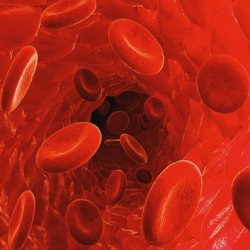
Early trial data shows a drug developed using artificial intelligence can slow the growth of cancer in clinical trials. The data, presented at the American Society of Clinical Oncology conference, showed some tumors shrank by around a quarter. The compound will now be taken into more advanced trials.
Scientists said we were now in an explosive stage of merging advances in computing with medicine. Spotting every difference between a cancerous and a healthy cell is beyond even the brightest human minds.
So the US biotechnology company Berg has been feeding as much data as its scientists could measure on the biochemistry of cells into a supercomputer. The aim was to let an artificial intelligence suggest a way of switching a cancerous cell back to a healthy one.
It led to their first drug, named BPM31510, which tries to reverse the Warburg effect – the phenomenon in which cancerous cells change their energy supply. Data from 85 patients showed signs the approach could kill tumors.
The trial was designed to test only for toxicity, but in one patient the tumor shrank by a 25%. Dr Niven Narain, one of the founders of Berg, said it was still early days for the drug, but claimed supercomputing was the future of cancer.
He told the BBC News website: "I think we’re at a very explosive stage, this fusion of biology with technology in helping us understand the basis of this disease more fundamentally.
"It’s going to allow us to make better decisions on how we develop drugs, to whom we give these drugs to so that we’re able to increase the survival outcome."
